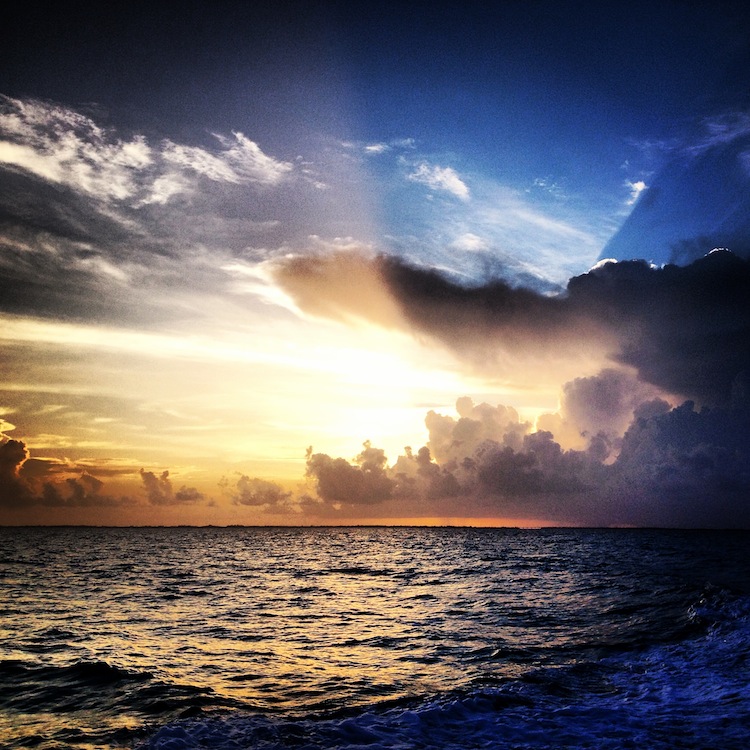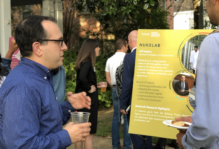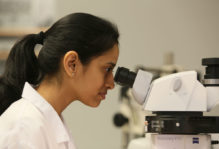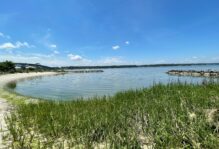The Night Dive
Follow along with The Lionfish Project on my project website, Facebook page, and Twitter, as well as the National Geographic Explorers Journal.
I was lying face down on the couch in the dive shop when Doug came up and tapped me on the shoulder.
“Night dive tonight” he said. “You coming?”
I groaned and peered up at him cautiously. Considering I had spent the last minute and a half calculating how to pick up my Diet Coke without adjusting my position on the couch, the thought of strapping fifty pounds of gear onto my back was particularly uninviting. I muttered something unintelligible.
He laughed. “What else are you going to do tonight? Sit on your couch?”
That was the plan, I thought to myself. I had been diving all morning in an attempt to set lionfish transects with researchers at REEF, and was only in the dive shop to finish the test to get my Rescue Diver certification. The last few days had been grueling; between interviews, travel, and late night edits, I was averaging about 5 ½ hours of sleep and driving up to 150 miles a day. But it only took a few minutes for me to realize I was had—there was no way I could turn down a dive, and Doug knew it.
An hour later I was loading my gear on the dive boat. Although I was still a bit groggy, I had to admit it was a perfect night for a dive—the night was warm and breezy, and the water was finally calm after a week of rough seas and horrible visibility. I closed my eyes and listened to the familiar hum of the engine accompanied by the clanking of weights and tanks as divers prepared their gear. Twenty minutes later, we arrived at the site just in time to see the blood orange sun slip behind the horizon, the end of another dramatic Florida Keys sunset. Then, we grabbed our masks, jumped in the water, and started our descent.
The ocean transforms at night. All kinds of animals shake their shyness under the cloak of darkness, and the reef comes alive. Armed with only underwater flashlights, we started pouring over the coral, closely examining every crevice so as to not miss a single creature in our ecological treasure hunt. The steady shhhhhh…blub blub blub of our regulators was the only sound as we drifted along the reef, our flashlights haphazardly darting back and forth. Occasionally we’d hear a sharp tap tap tap of a metal clip against a steel scuba tank, the signal that our divemaster had found something of note. Our first find was a green moray eel wedged under a protective rock ledge, followed by a large barracuda zigzagging through our procession, hunting by the glow of our flashlights. We then found a loggerhead turtle resting by the sea floor, who then swam off lethargically as if he was more bored by our presence than scared by it.
I spent the next hour in a state of constant wonder—I couldn’t look around fast enough to soak in all of the underwater sights. A spotted moray eel struck at unsuspecting fish as a huge southern stingray glided along five feet away. Dozens of brightly colored brittle stars slink back into their coral crevices at my approach, like spiny-tentacled monsters from a child’s nightmare. Translucent squid drifted through the open water, transfixed by my light, as damselfish circled around each other in an elaborate mating dance. I had never seen the reef so vibrant and so alive.
After a while I shut off my light and turned away from the others towards the pitch-black territory behind us. I flipped onto my back and kicked my fins slowly, watching in awe as the sea lit up with the million tiny stars of bioluminescent plankton. Then I moved my hands in slow circles as tiny sparks seemed to shoot out of my fingertips. It was utterly hypnotic.
Taptaptaptaptap.
I was shaken out of my trance as I heard the harsh call of the divemaster. This call was much more frantic than any before, which meant either he had found something particularly amazing, or something was wrong.
I flipped on my light and swam briskly to his side. As soon as he saw me, he grabbed my arm and yanked me down forcefully while pointing under a small, flat rock on the sea floor. It took my eyes a second to adjust…then…
An octopus.
I was so excited that I started yelling into my regulator. This was my holy grail of diving, and Doug knew it. For five years I had looked for an octopus with no luck, yet here it was. It only was there for a split second, just long enough for me to see it’s creamy white skin and bulging eye before it darted under the rock and out of sight. Doug and I sat there for a minute, sharing celebratory high-fives and unintelligible but victorious grunts through our regulators.
We ascended ten minutes later and quickly returned to the boat. Divers swapped stories excitedly, talking over each other to share whatever unusual creatures they had uncovered. I stripped off my wetsuit and took apart my gear, smiling the whole time. I had just experienced the best dive of my diving career and had never felt more passionate about the ocean and the work I was doing to protect it. I spent the ride back to the dock trying to soak in every tiny detail of the warm Florida breeze, the salty ocean air, and the cloudless sky packed with stars.
And to think I almost missed this for a night on the couch.
Comments are currently closed. Comments are closed on all posts older than one year, and for those in our archive.





It sounds like you are having the adventure of a lifetime Erin! Keep up the good work, I love reading your stories.